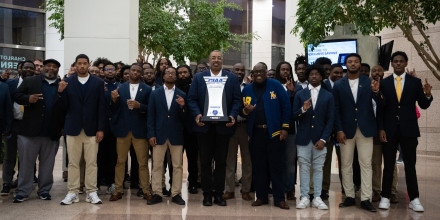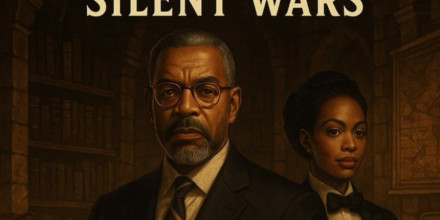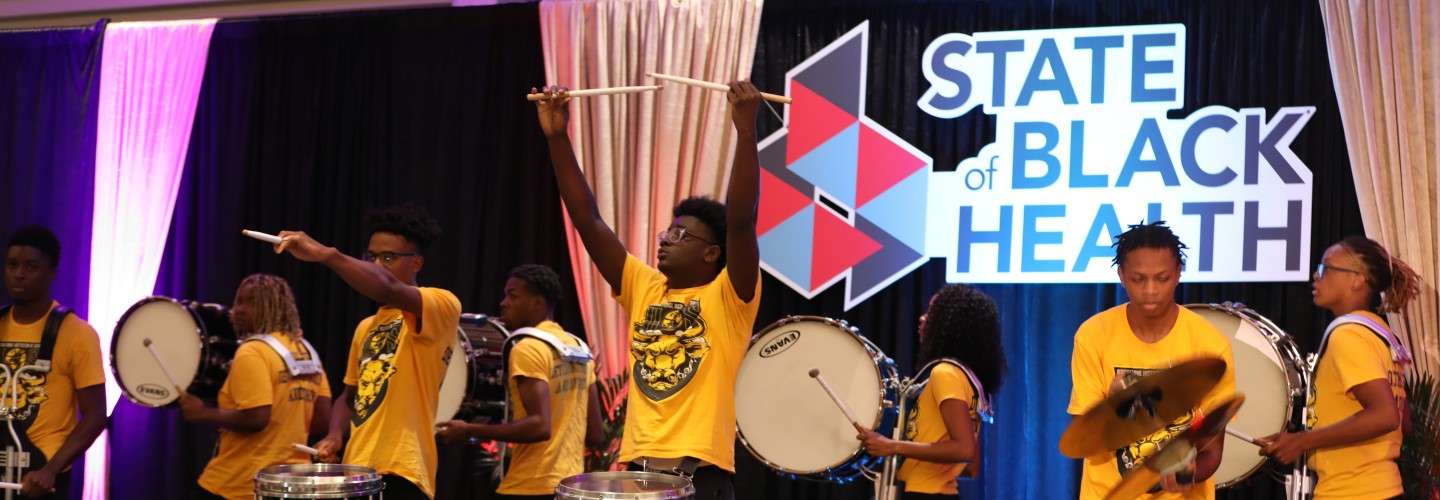
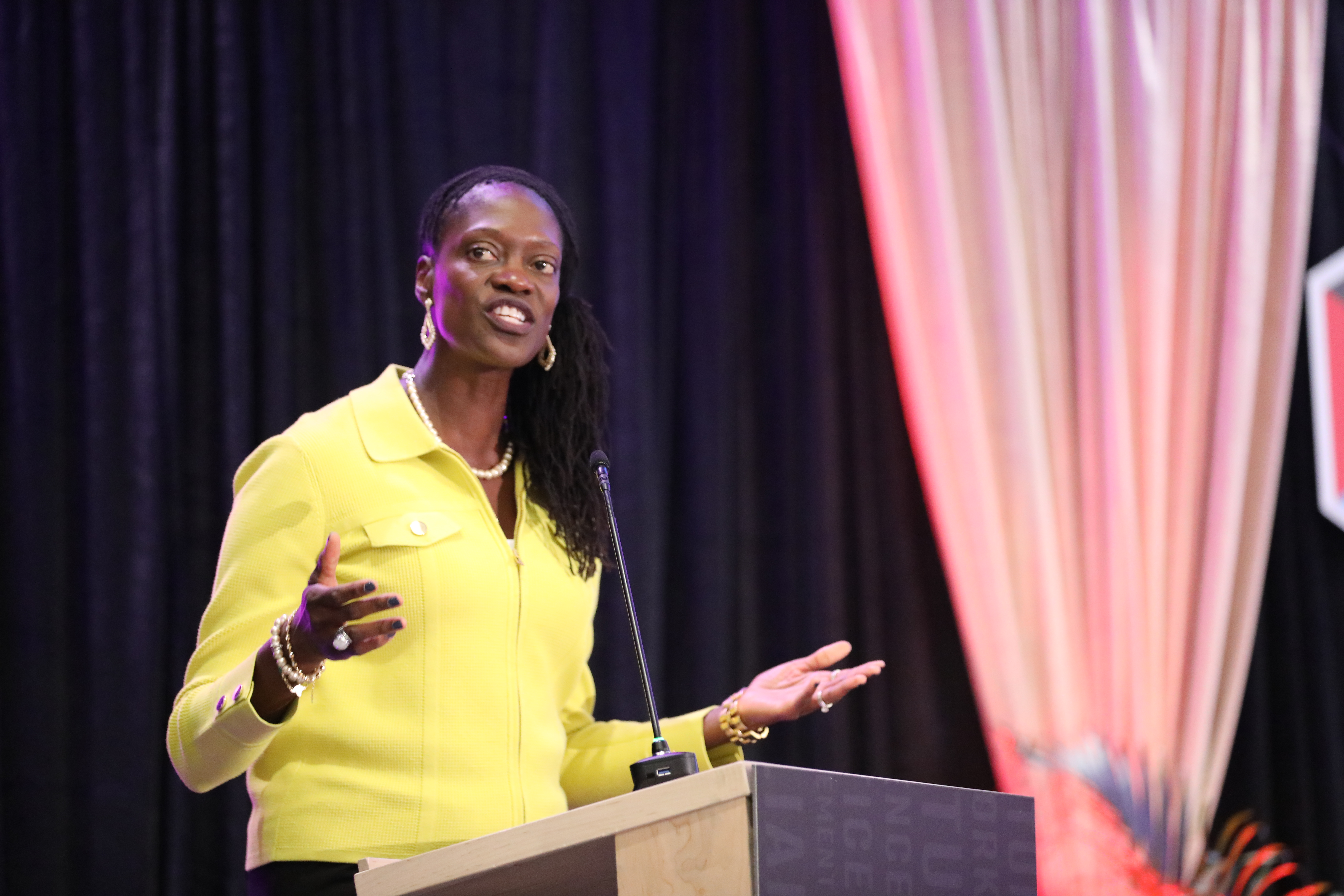
Charlotte, N.C. / September 15, 2025 – Johnson C. Smith University President Valerie Kinloch set a powerful tone for the State of Black Health Conference, held during September 2025 at the Charlotte Westin Uptown. In her opening address, President Kinloch called on attendees to see education, health, and equity as deeply interconnected struggles that demand courage, love, and collective action, particularly in the Black community.
Kinloch, a 1996 graduate of Johnson C. Smith University who returned as its 15th president in 2023, spoke passionately about her journey and the legacy of JCSU. “There is nothing like being back at my undergraduate alma mater, Johnson C. Smith University, here in Charlotte, North Carolina, and to represent this institution as its 15th president,” she said to applause.
In a rousing call-and-response speech, President Kinloch reminded the audience of the historic context in which HBCUs like JCSU were founded. “We were founded in 1867 at a time when other institutions did not want to open their doors to people who looked like me and many of you in this room,” she said. “Our ancestors told us: Without struggle, there is no progress. And that truth still guides us.”
Kinloch emphasized that education must be understood as more than classroom learning—it is about shaping lives and communities. “Education is not just about what we do in classrooms. It’s about what we do in the world,” she said. “At Johnson C. Smith University, the basic principle is love. Everywhere on our campus we embody love, we share love, and we speak about love with one another. That is nonnegotiable.”
Addressing the challenges of higher education in 2025, Kinloch pointed to both progress and ongoing struggles. She noted that JCSU welcomed its largest incoming class in more than a decade last fall, but also faces threats to financial aid and declining federal support. “Despite the reduction in support for the students who need us the very most, we continue to fight. We continue to support our students, our families, and the neighborhood in which we are located,” she said.
She also highlighted JCSU’s academic strength and community impact. “We are a community of about 1,300 students. We have three colleges: the College of Liberal Arts, the College of STEM, and the College of Business and Professional Studies. We are deeply committed to public health—particularly looking at the social determinants of health and well-being. We are also a university where we believe in our saying: it’s a New Era of Excellence.”
Kinloch invoked the wisdom of writers and thinkers such as bell hooks, Toni Morrison, Alice Walker, and Lucille Clifton, urging attendees to recognize the interconnectedness of health, equity, and identity. “The struggles that we endure are not particular to Charlotte and not particular to one university,” she said. “These struggles relate to every single one of us in this room and people across the globe.”
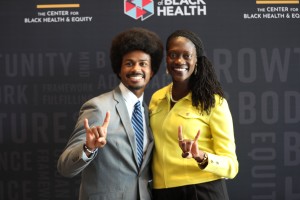
Her closing charge was both personal and collective. “Wake up. Think about your faith. Think about your belief in the world. Think about the children who might not have access to educational opportunities if it were not for us. Remember the work of our ancestors. And believe that the struggles we are enduring right now will come to pass—because we believe in each other.”
Finally, Kinloch tied her message back to her roots. “As a first-generation college student from downtown Charleston, South Carolina, I know what it means to walk onto a campus unsure if you belong. That’s what Johnson C. Smith University did for me—it showed me I belonged. And that’s what we do every single day for the next generation.”
With her words, President Kinloch left the audience both grounded in history and inspired to act, underscoring the conference’s focus on health equity, justice, and the ongoing fight for Black communities across the nation.
Dr. Kinloch's address was followed by a fiery speech from keynote speaker , Rep. Justin Pearson, an outspoken Democrat from Tennessee. The pair elicited thunderous applause and intermittent standing ovations in the room. After the opening session, both speakers - Kinloch and Pearson - were inundated by long lines of fans, looking for photographs, one-on-one conversations, and hope.


